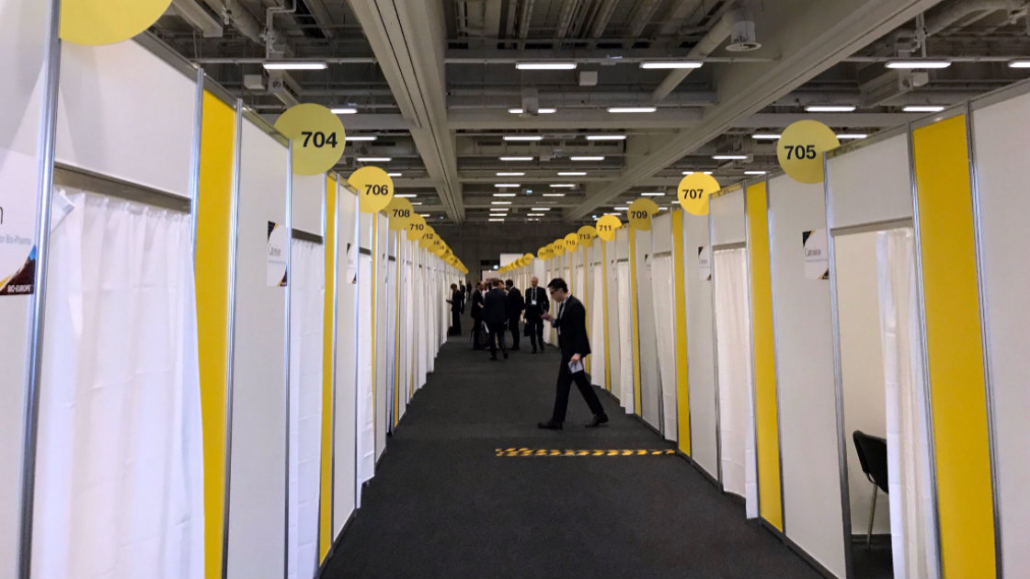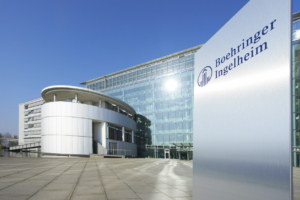
BIO-Europe more popular than ever
More than 4,000 participants from all over the globe visited Berlin in early November to take part in this year's BIO-Europe. The event continues to be on the upswing - like the biotech industry itself.
The three-day partnering event BIO-Europe returned this year to Berlin after a 17-year-hiatus. In early November, more than 4,000 people engaged in partnering meetings, workshops, panels and company presentations – a record number for this event. The accompanying programme started off with a keynote lecture by Dieter Weinand of German pharma company Bayer. Referring to the way partners in the life sciences value chain collaborate, Weinand observed that instead of focused, singular collaborations between biotech and pharma companies, multi-year partnerships covering whole therapeutic areas are recently preferred. Also, collaborations with acadaemia become more important for pharma companies, Weinand said, and innovation centres that have been set up in the past years shall become the driving force for innovation.
A discussion about the European public market revealed some pitfalls that have to be steered clear of when thinking about an initial public offering (IPO). Ulrica Slane Bjerke of Artic Fund Management finds that sometimes venture capital companies dress up the bride maybe too early. Furthermore, company leaders should improve the degree of sophistication so that growth continues also after a successful IPO has been pulled off, she added.
This year’s winner of BIO-Europe’s Startup Slam Competition – sponsored by Johnson & Johnson Innovation – was Amylon Therapeutics BV from Leiden (Netherlands). Just having announced its seed investment round in September, the award will help the young company to raise awareness for its lead programme AT-010, a drug candidate targeting Katwijk’s disease. Katwijk’s disease is a rare genetic beta amyloid-related disorder that causes the early onset of hemorrhagic strokes during mid-adulthood. Future beta amyloid related targets that could be addressed by Amylon also include cerebral amyloid angiopathy. AT-010 is a first-in-class RNA-based oligonucleotide that induces splicing modulation in the mature Amyloid Precursor Protein mRNA resulting in a protein that lacks the aggregation prone Beta-amyloid peptide. Judge Regina Hodits, from venture capitalist Wellington Partners said, Amylon therapeutics stood out because of the potential of their innovation to translate into transformative healthcare solutions for patients.
Next year, Europe’s largest biotech conference will be held in Copenhagen (Denmark) and Malmö (Sweden). According to Novo Nordisk, one of the companies that has been involved in landing the conference, BIO-Europe will pave way both for export and investments, and fuel the international promotion and branding of the region. At the Closing Reception, Novozymes’ Christine Lang passed the torch from Berlin to Copenhagen representatives. Her microbial research company Organobalance GmbH was acquired by Denmark-based enzyme producer Novozymes last year, firmly linking the two capitals. Taking the opportunity, Lang emphasized that the pharma sector is becoming increasingly attractive to Novozymes and that the company will enlarge its activities in this field in the future.
Along the way there’s BIO-Europe Spring in March 2018 in Amsterdam not to be missed.
© european-biotechnology.com/ml



 Boehringer Ingelheim
Boehringer Ingelheim Olga Yastremska, New Africa, freepik
Olga Yastremska, New Africa, freepik